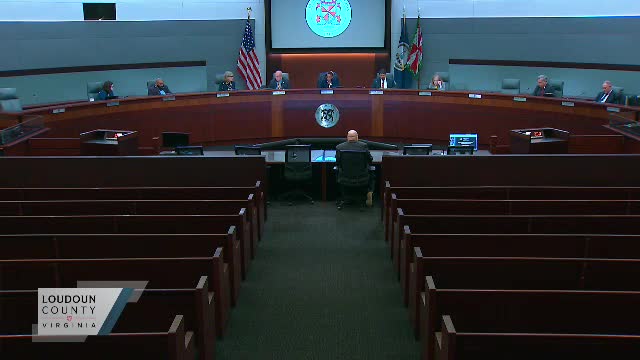Loudoun updates personal‑property assessment schedules; data‑center equipment and heavy trucks most affected
Get AI-powered insights, summaries, and transcripts
Subscribe
Summary
Commissioner of the revenue and outside consultants on Nov. 6 presented a benchmark study recommending updates to Loudoun County’s personal‑property assessment schedules, including new valuation guides for some vehicle classes and longer depreciation schedules for heavy equipment and data‑center equipment, effective Jan. 1, 2026.
The Loudoun County commissioner of the revenue told the Board of Supervisors on Nov. 6 that a consultant review of assessment schedules warrants updates to how the county values business personal property and certain other personal‑property classes.
Commissioner Wirtz and consultant Randy Bauer described a benchmark study of Northern Virginia and other Virginia jurisdictions and recommended methodology changes that will take effect Jan. 1, 2026, and appear on the first half personal‑property bill due in May 2026. Key changes include: lengthening the recovery schedule for data‑center computer equipment from five to six years (with a higher initial assessment percentage and a lower terminal floor), combining furniture/fixtures and general computer equipment into one schedule to simplify reporting, extending heavy construction and machinery/tool schedules from five to seven years with higher initial percentages, and moving certain vehicle classes (motorcycles, campers, RVs, heavy trucks) to valuation guides such as JD Power or ABOS Marine instead of relying solely on percentage‑of‑cost methods.
Wirtz cited Virginia statutory language that requires assessments at fair market value and permits different valuation methods across property classes so long as each method is uniform within the class. He said the county relied on percentage‑of‑cost historically because comprehensive market data was not available; newer valuation guides and automated sales data now make market‑based valuations more practical and, staff said, more equitable across jurisdictions.
Board members pressed on implementation and potential fiscal impacts. Staff and the consultant said heavy trucks and some campers/RVs could see the largest assessment increases because percentage‑of‑cost under‑captured market values for those categories. Commissioners noted that the board has authority under Virginia law to set a different tax rate for a separate class of property (for example, heavy trucks) so an assessment change need not automatically imply a higher tax bill if the board elects a different rate within the limits of state code. Staff said the county will notify affected property owners by letter and provide public information. The board will have an opportunity to discuss a separate tax rate for affected classes prior to levy decisions. The county expects to continue using JD Power for most vehicle valuations and said sample comparisons informed the recommended schedule changes.
No immediate tax‑rate change was adopted in the Nov. 6 discussion. The methodology changes themselves were presented for board review and will be implemented administratively with notice; any decision to apply a different tax rate to a reclassified property class would require a separate board action.
